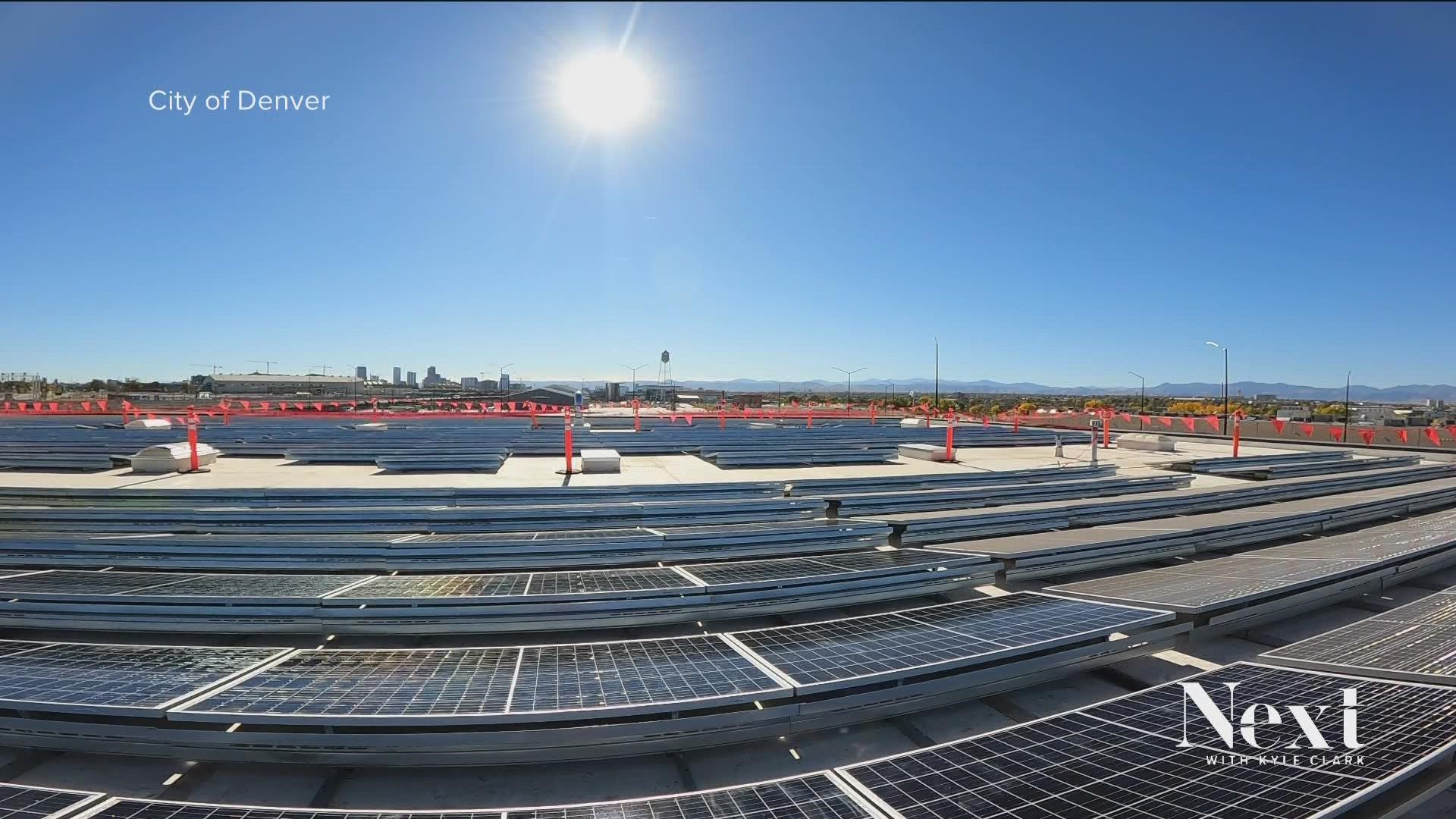DENVER — There are new gardens being built across Denver.
Not the kind of garden you might be thinking of, but the kind of garden where you can harvest energy and donate it to low-income families.
It's designed to address environmental equity. Without this kind of equity, Denver won't reach its environmental goals. These solar panels were installed on two of the new buildings associated with the redevelopment project at the National Western Center.
The rest will be built in neighborhoods, recreation centers, and Denver Public Schools' property through next year.
The City of Denver said once the 11 projects are completed, 40% will support low-income households through Denver Public Schools and the Denver Housing Authority.
"Anything we can do reduce their electrical bill for Denver Housing Authority leaves the agency more money to provide services," said Grace Rink, the executive director of the Climate Action, Sustainability and Resiliency Office for Denver.
Denver Public Schools is working with Energy Outreach Colorado to connect with families.
DPS already has hubs of resources for families and is identifying those who could use on-going support and then connecting them with EOC and the solar garden program.
EOC said it could help save a family $700 a year on average.
"For the bill reduction specifically," Rink said. "We anticipate at least 300 households will be accommodated in our program."
It's an admittedly small number, when you look at how many families live in areas that are considered climate change vulnerable.
"In Denver, climate vulnerable communities follow geographically, the inverted 'L,' which happens to match up with historically red lined neighborhoods," Rink said.
"How prepared are households to withstand changes climate change is already bringing to us?" she asked. "Like extreme heat and increased air pollution, which we are trying to reduce, and other extreme weather events. How well can they withstand them when they happen, and how well can they bounce back once those events end?"
"No community, no city can ever reach climate goals if we abandon an entire portion of our population," Rink said.
Kim Shields, Director of Strategic Initiatives at EOC, estimates on the low end, 100,000 people could use help with their energy bill and for the clean energy transition in the city. The solar gardens are just one small part of a series of projects to provide that kind of assistance, as well as close the gap left by Xcel Energy's efforts.
"80% of their energy will come from renewable resources by 2030," Kelly Flenniken, the director of community relations at Xcel, said of their customers. "Carbon reduction of at least 85 is being forecasted."
Xcel is building out the transmission system it needs to move more renewable energy, like wind and solar, across the state and will be getting proposals to significantly transition the grid. Xcel is expecting more information on that come spring.
"[We've] Analyzed fuel sources over time. What we've seen is [the] cost of renewable resources is now as competitive, if not more affordable, than some of the more traditional sources," Flenniken said. "I don't know exactly what the bill impact is going to be."
Flenniken said building out the transmission system is estimated to cost around $2 billion. The cost of bringing on renewable energy sources online hasn't been determined yet.
Once the projects are completed, Xcel goes back to the Public Utilities Commission to discuss rates and determine if current rates will cover the costs of these projects, or if people's bills need to go up to recover the costs of the bills.
That hasn't been determined yet.
In addition to the solar gardens, the city of Denver shared this about other programs meant to assist families:
"Through the Climate Protection Fund we are funding a lot of innovative programs to enable all Denverites, regardless of income, to participate in the new green economy and reduce their environmental impact. We have job training programs to get under-resourced people into high-paying trades jobs that we need for the green economy. We have free e-bike libraries for essential workers, and over 2100 income-qualified people now have e-bikes thanks to our very popular rebate program. Our home energy rebates will launch again in 2023 so that many residents can swap out their aging and inefficient furnaces and hot water heaters for new electric models, this program also brings down the cost to charge your electric vehicle at home, and to add solar power to your house. We have a lot of exciting programs in store for 2023."
SUGGESTED VIDEOS: Next with Kyle Clark

